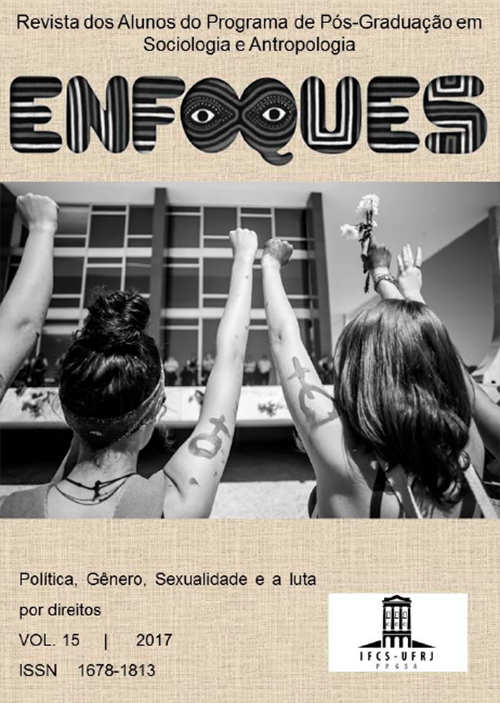Quando o feminismo encontra o carnaval: O 'Bloco das Mulheres Rodadas' e a luta por direitos
Parole chiave:
feminismo, carnaval, direitos humanos, epistemologia feminista, arte políticaAbstract
A fim de propor reflexões sobre o caráter emancipatório da arte, bem como o seu papel na luta por direitos, este trabalho parte de análises e observações acerca do "Bloco das Mulheres Rodadas", que ocupou as ruas da cidade do Rio de Janeiro durante o Carnaval de 2015. Considerando que o Carnaval configura uma ruptura no cotidiano representando uma subversão da ordem até então imposta, é possível pensar acerca da construção de espaços de luta e de fala, necessários às reinvindicações expostas pelo movimento feminista. Para tanto, parte-se da concepção de Joaquín Herrera Flores (2009) de que os direitos humanos correspondem a produtos culturais. O que significa dizer que é no contexto social e nas lutas por condições igualitárias de acesso aos bens necessários a uma vida digna, que são produzidas as mudanças sociais imprescindíveis à emancipação.
In order to propose some reflections regarding the emancipatory character of art, as well as its role in the struggle for rights, this paper assumes the analyses and observations on the “Bloco das Mulheres Rodadas”, that occupied the streets of the city of Rio de Janeiro during the Carnival of 2015. Considering that the Carnival configures a rupture in the daily life, representing a subversion of the order already imposed, it's possible to think about the construction of spaces of struggle and speech, necessary to the claims exposed by the feminist movement. Therefore, we start from the conception of Joaquín Herrera Flores (2009) that the human rights correspond to cultural products. Which means that it is into the social context, and the struggles for equal conditions of access of goods necessary for a dignified life, where the social changes essential to emancipation are produced.
Keywords: feminism, carnival, human rights, feminist epistemology, political art

